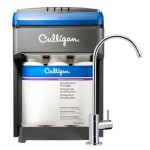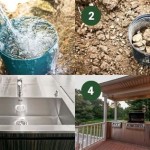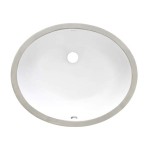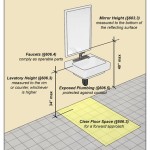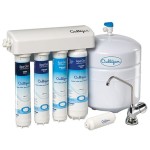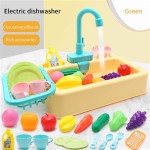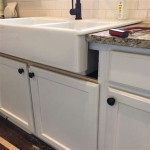Why Does Under My Sink Smell?
A foul odor emanating from under your sink can be an unpleasant and perplexing issue. It can range from a mild, musty scent to a pungent, nauseating stench. The source of the smell can be difficult to pinpoint, but understanding the potential culprits is crucial for effective odor elimination. This article explores common reasons for under-sink odors, offering practical solutions for resolving this persistent problem.
1. Clogged or Leaky Pipes
One of the most common culprits behind under-sink odors is a clogged or leaky pipe. When pipes become blocked with debris, stagnant water can accumulate, creating a breeding ground for bacteria and mold. This decomposition process releases foul-smelling gases. Leaky pipes, even if small, can also cause water to pool and stagnate, leading to the same issue.
To address this, inspect the pipes under your sink for visible leaks or signs of corrosion. If you notice a leak, contact a plumber immediately for repair. For clogs, you can attempt to clear them with a plunger or drain snake. If these methods prove ineffective, professional intervention may be necessary.
2. Garbage Disposal Issues
Garbage disposals, while convenient, can also be a source of unpleasant odors. Food particles trapped within the disposal unit can decompose, releasing foul smells. A lack of proper maintenance, such as infrequent cleaning, can exacerbate the problem.
Regular cleaning is crucial to prevent odors from building up. Run cold water while grinding ice and a few tablespoons of baking soda through the disposal. This helps to break down food debris and sharpen the blades. Avoiding harsh chemicals can also be helpful.
3. Leaky Dishwasher
Dishwashers are known for their potential to contribute to under-sink odors. Leaks, particularly around the door seals or in the drain line, can result in water pooling and creating a breeding ground for bacteria and mold.
Check the dishwasher for any signs of leaks or water damage. Regularly inspect the door seals for wear and tear, and replace them if necessary. If leaks persist, contact a qualified appliance technician for repairs.
4. Overflowing P-Trap
The P-trap is a curved section of pipe located under your sink. It acts as a barrier, preventing sewer gases from entering your home. If the P-trap dries out, these gases can escape and create an unpleasant odor.
To prevent a dry P-trap, ensure that the sink drain is used regularly. If the sink hasn't been used recently, pour a cup of water down the drain to replenish the trap.
5. Mold and Mildew Growth
Under-sink areas can become breeding grounds for mold and mildew due to the presence of moisture and limited air circulation. This fungal growth can release spores that contribute to a musty or damp smell.
Regularly clean the area under your sink, paying particular attention to corners and crevices. Use a bleach solution or a commercial mold and mildew cleaner to remove any existing growth. Ensure proper ventilation by leaving cabinet doors open for a short period after use.
6. Improper Ventilation
Limited ventilation can trap moisture and odors under the sink, exacerbating the issue. Insufficient airflow can also contribute to mold and mildew growth.
Improve ventilation by ensuring adequate airflow under the sink. Consider adding a small fan or installing a vent to circulate air in the area.
7. Detergent and Cleaning Product Odors
Strong-smelling cleaning products, such as bleach or ammonia, can linger under the sink after cleaning, causing unpleasant odors. Improper storage of these products can also lead to accidental spills and persistent smells.
Use mild, non-toxic cleaning products whenever possible. Store cleaning products in airtight containers and ensure they are properly sealed.
8. Pests
Insects and rodents, particularly those attracted to moisture and food scraps, can contribute to under-sink odors. Their presence can create unpleasant smells and potentially contaminate the area.
Inspect the area under your sink for signs of pest activity, such as droppings or gnawing marks. Take steps to eliminate any infestations by contacting a pest control professional.

Why Does Bathroom Smell Like Sewage Crystal Blue

What S That Stinky Smell In My Drain Odor Fix

Why Does My Kitchen Sink Smell Like Sewer Mike Diamond

Why Does My Bathroom Sink Smell How Do I Resolve It

Stinky Sink Here S What Causes A Foul Drain Smell

Bathroom Mystery Pipe Under My Sink And An Intermittent Sour Smell Home Improvement Stack Exchange

Bad Smell Under Sink And In Base Cabinets Plumbing Forum The Inspector S Journal

How To Clean A Stinky Sink Drain

Why Does My Water Smell Culligan Quench

Why Does My Bathroom Sink Stink Plumbing Authority Inc
